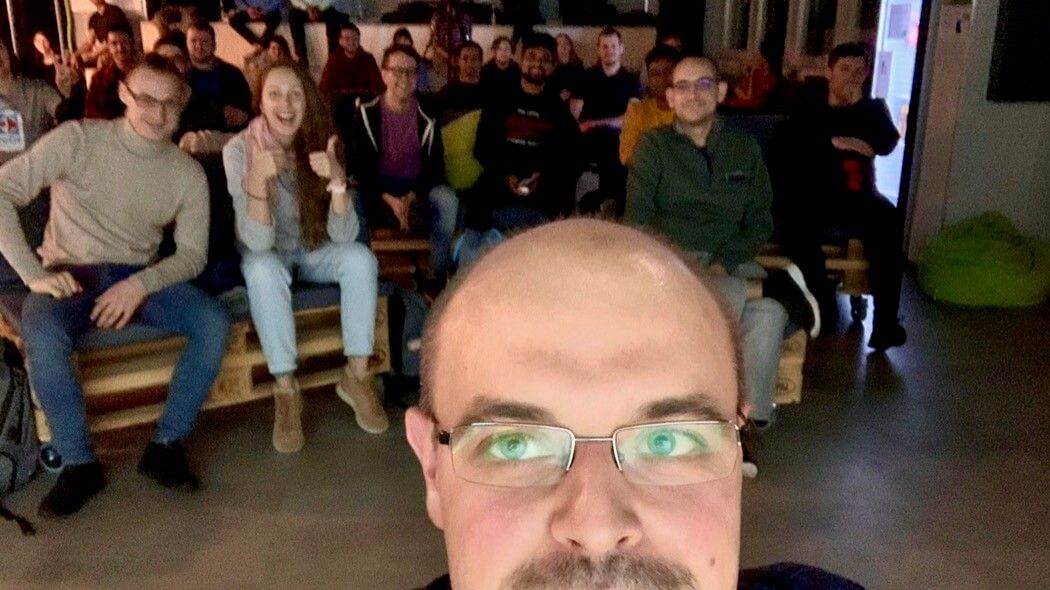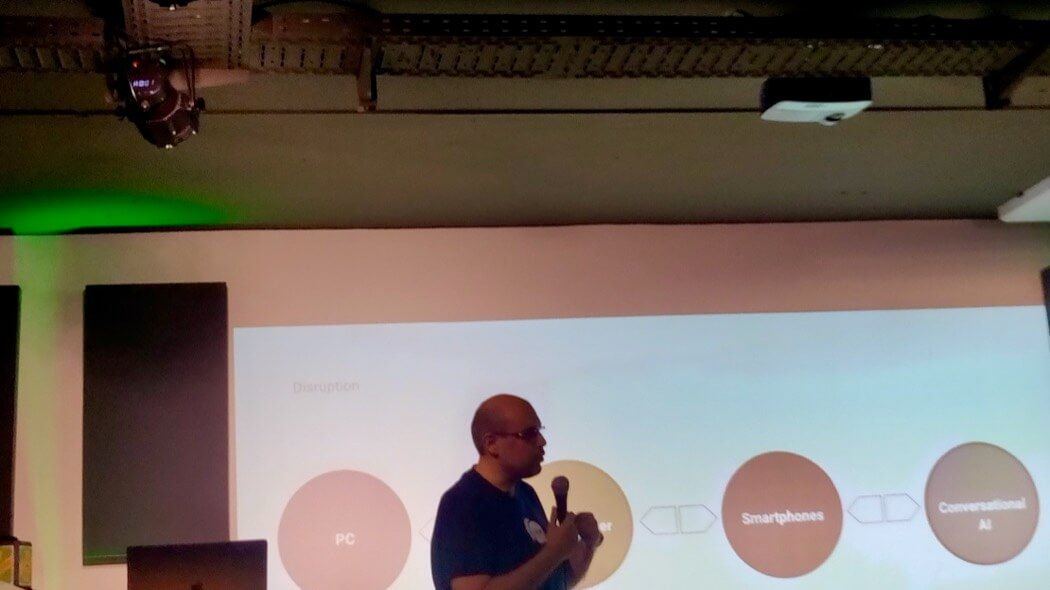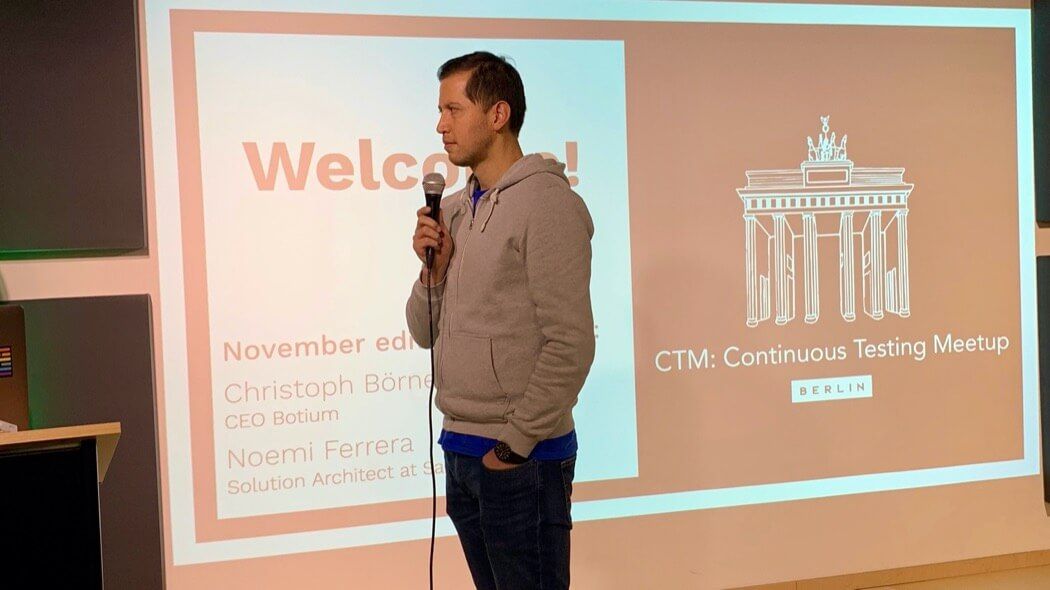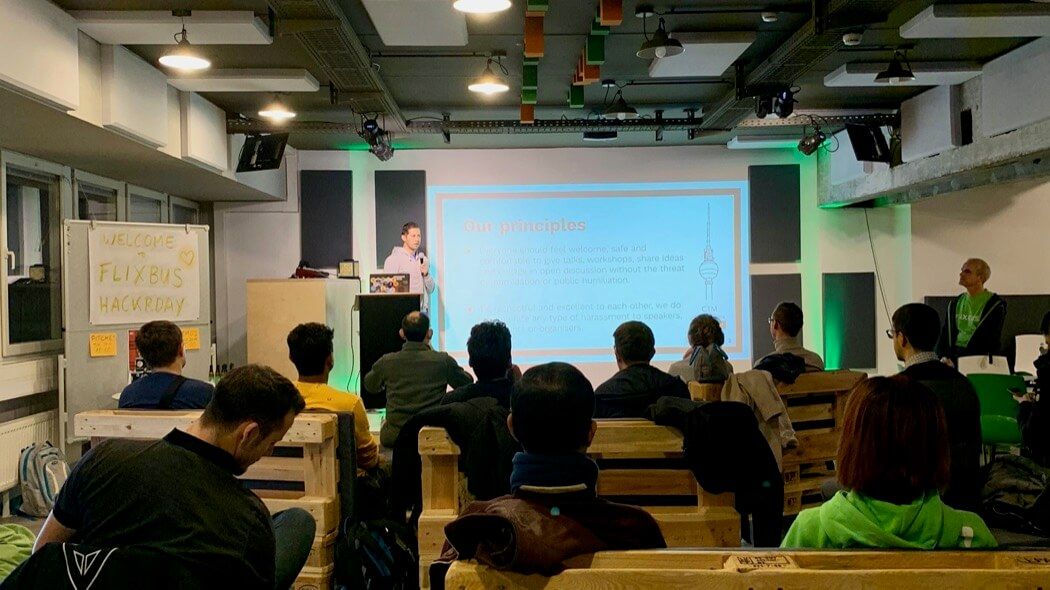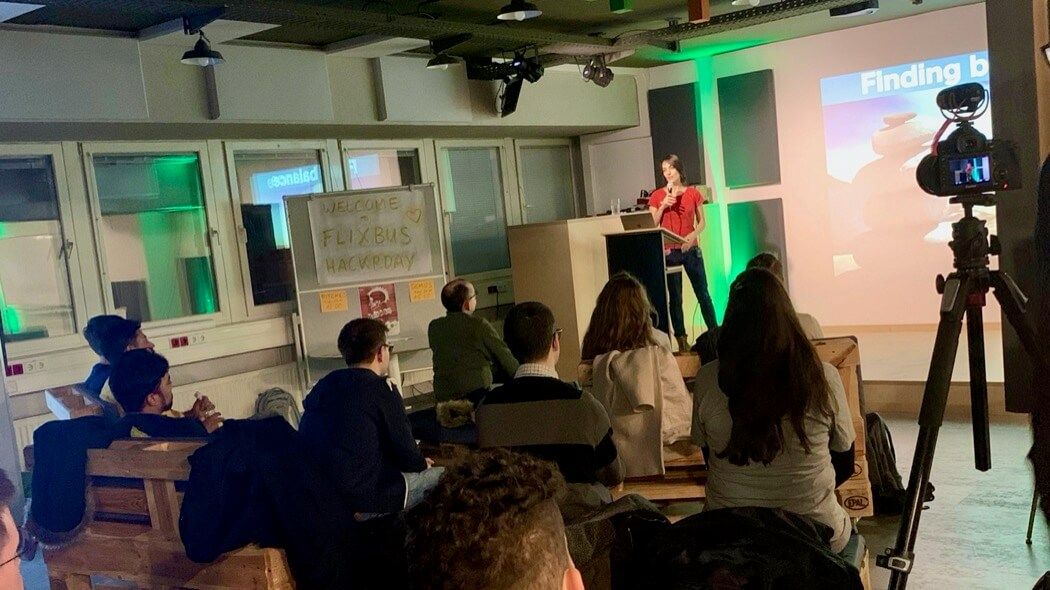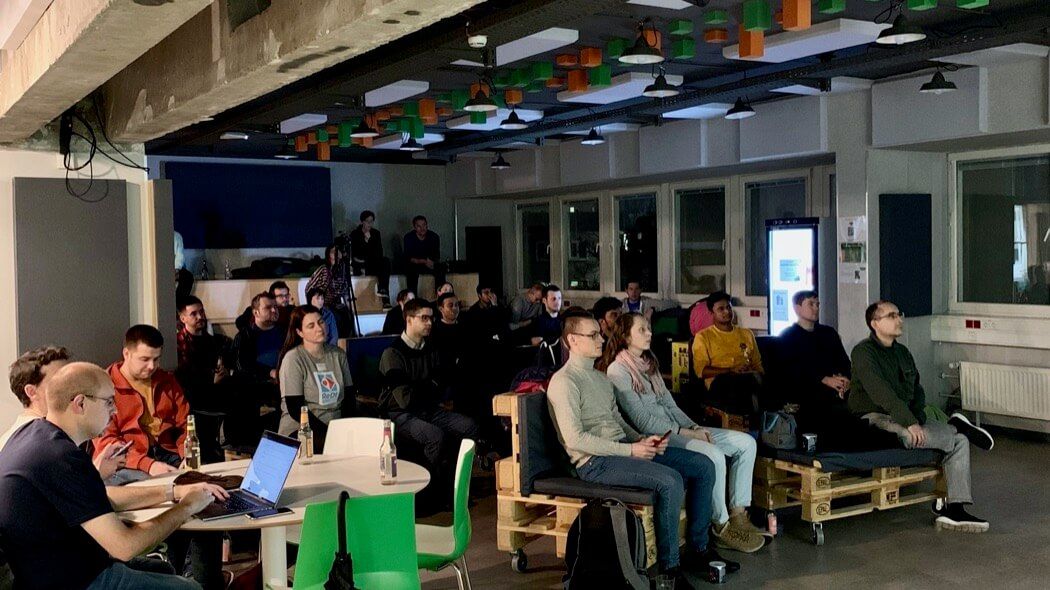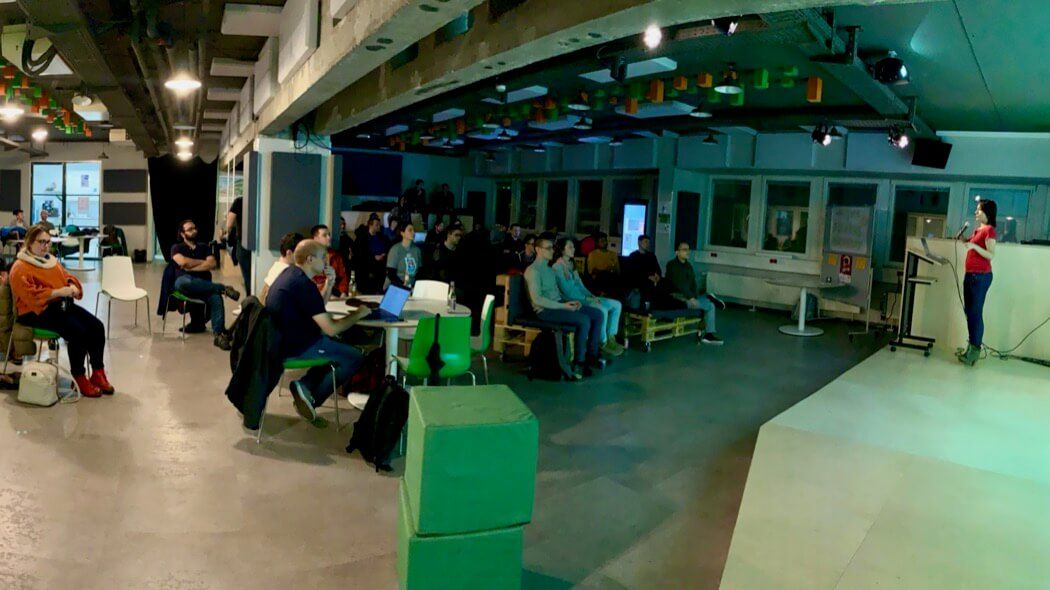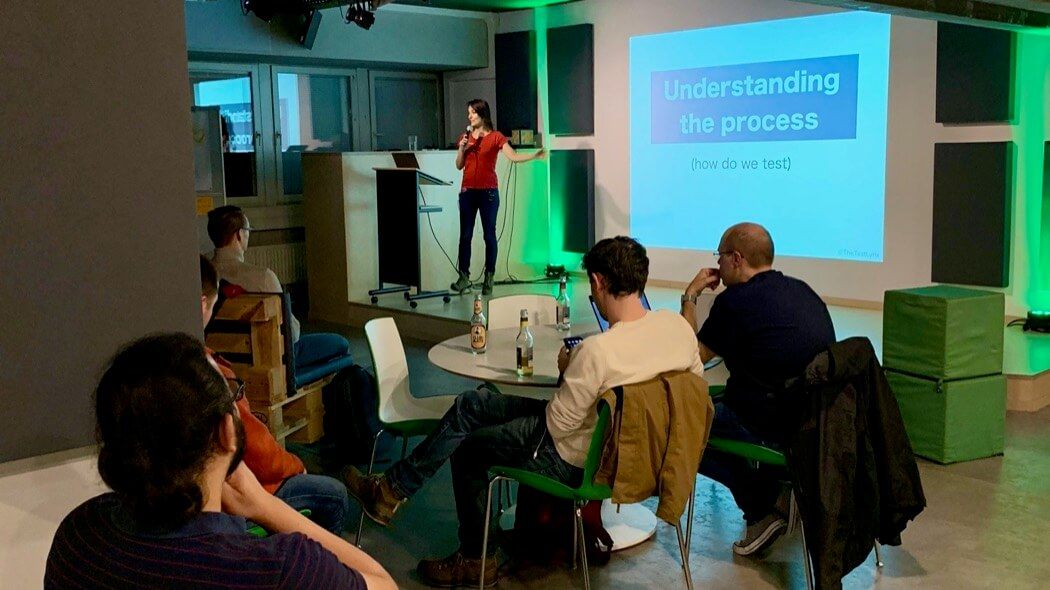Special thank you to FlixBus for hosting and sponsoring drinks!
Testing conversational AI: The Rise of The Bot
Conversational AI is driving the industry like hardly any other topic. Chatbots and virtual assistants are playing major roles in the automation strategies of companies. The hypes generated around Amazon’s Alexa or Apple’s Siri are only two examples. Technically, these are robots based on artificial intelligence to imitate human conversation through text and voice commands. And, bots are here to stay!
Chatbots are the new websites and will kill 99% of the apps out there. By 2022, over 80% of businesses are expected to have some kind of bots implemented. Voice assistants will soon power 85% of all customer service interactions. We will widely rely on them and that makes it extremely important to assure the quality and test thoroughly. There the problems begin… Talking to a chatbot has no barriers. Combining this with unpredictable user behavior, it becomes utmost difficult to verify the correctness of conversational AI. Training data and test sets are infinitely large. In fact, quantity plays a crucial role in quality assurance for bots but makes it impossible to test manually.
In this talk, we will discuss how challenging it is to test conversational AI, the differences to quality assurance of conventional applications a nd focus on test automation strategies based on the Botium framework.
Bio
Christoph Börner is an entrepreneur, developer, tester, keynote speaker and organizer of meetups and community events. Together with his team in Vienna, they are inventing Botium, the upcoming industry standard in testing chatbots, voice assistants and conversational AI. After Selenium for web and Appium for mobile, Botium is the next logical step for bots. And, it’s open source!
Video
Using AI to automate test case decision
Noemí Ferrera, Solution Architect at Sauce Labs
In this talk, you’ll learn how to use different techniques and methods to help you decide which tests to execute from a long list without comprising quality, including the use of artificial intelligence.
A common issue with current applications is that the number of test cases in an application increases rapidly with the number of features developed. However, the speed of development is expected to increase every release.
How can you make sure that your application is safe to be delivered without compromising quality in the process? This is what I started wondering a few years back. I encounter a long list of test cases created and I was the final responsible for signing off before release. So, I started to experiment with different methods of improving the test execution and deciding what tests to run. In this talk, I will be sharing this experience.
From simple actions such as making sure you clean your tests and having a shorter list of ‘must runs’, all the way to using artificial intelligence to pick the tests that are more likely to fail, you will gain knowledge that will help YOU improve your current testing speed.
Bio
Noemi is a computer scientist passionate about technology and testing. She holds the position of senior software developer in test and she strives for quality, automation and tooling creation to ease the entire development process. Her career goal is to research new technologies (such as AI and VR) and apply them to testing. She has worked in multinational companies such as IBM, Microsoft, Dell, also in a startup in Ireland, and Netease Games in China. Currently, she works as a Solution Architect at Sauce Labs.
